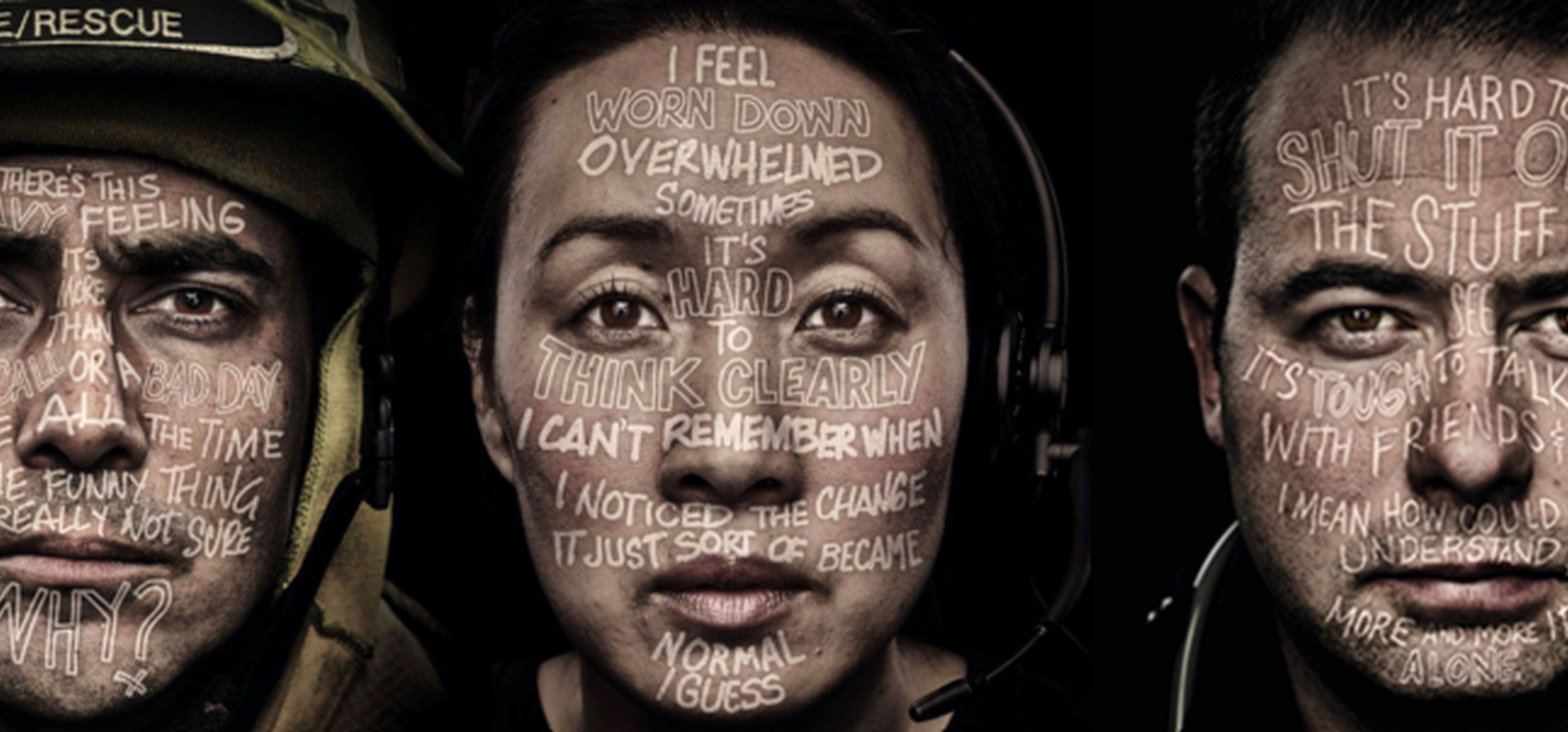Managing Stress in the humanitarian context. (Part 2 of Mental Health week)

Posted by Rich Mcsweeney 20th May 2023 Press Releases
Estimated Reading Time: 5 mins
Humanitarian work is stressful regardless of our specific roles. Both in the field and at headquarters, staff and volunteers alike experience stresses.
However, these are made worse by lots of different factors that contribute to stress such as: emergency situations, funding constraints, lacking adequate training, not having appropriate and robust support system in place, week social support networks, insufficient support and resources in place to do this work, inadequate communication, close mindedness, not having enough time away from work, personal emotional vulnerabilities, history of personal traumatic events, other commitments outside of the humanitarian world and more.
On top of this, we as humanitarians, like everyone else, also experience stresses of everyday life. Many of us are survivors of the same events as the people we are helping even if the context is different. Afterall we all bring our own experiences into the work that we do. Just as each disaster is unique so are all of our experiences responding to such disasters.
It is important to identify these stressors, and evaluate their potential impact, along with taking a proactive approach to ensure overall wellbeing over time. Not doing so can lead to more complexities and those involved will more likely develop anxiety, post-traumatic stress, and compassion fatigue.
What is compassion Fatigue?
“Compassion fatigue is a state experienced by those helping people in distress; it is an extreme state of tension and preoccupation with the suffering of those being helped to the degree that it is traumatizing for the helper.” – Figley
You do not have to be directly exposed to the trauma scene, disaster site, but you hear the stories told with such intensity, or have similar stories so often, or you repeatedly are exposed in different ways, or you haver the gift and the curse of extreme empathy that you suffer. You start to feel the feelings of those you are supporting in whatever capacity. You start to experience their fears, dream their dreams, and you eventually loose a certain spark of optimism, humour and hope, You tire, you are not sick, but you are not yourself.
Having the empathetic ability to respond to those most in need to reduce their suffering, compassion stress which is the demand for action to relieve the suffering of others, prolonged exposure which is the ongoing sense of responsibility for the care of the suffering, over a protracted period of time, traumatic recollections are memories that trigger the symptoms of post-traumatic stress such as anxiety and depression, and other life changes are all contributory factors to one developing compassion fatigue. Those in the humanitarian sector are more prone to it due the type of work and the intensity of it they experience on and off the ground.
“First, you should understand that it’s a process. It’s not a matter of one day, you’re living your life with a great deal of energy and enjoyment, and the next, you wake up exhausted and devoid of any energy – both physical and emotional. Compassion fatigue develops over time – taking weeks,
sometimes years to surface. Basically, it’s a low level, chronic clouding of caring and concern for others in your life – whether you work in or outside the home. Over time, your ability to feel and care for others becomes eroded through overuse of your skills of compassion. You also might experience an emotional blunting – whereby you react to situations differently than one would normally expect.”

Relaxation and stress management techniques.
Although stress amongst those in the humanitarian sector is unavoidable, some stress can beprevented, mitigated and reduced and the effects as well as the intensity of stress on individuals, staff members, volunteers and organisations can be lessened.
Deep breathing exercises:
These will help relieve anxiety, irritability, muscle tension, and fatigue. When you have anxious thoughts, try focusing on your breathing, whilst concentrating on the feeling of your body. Make yourself comfortable either sitting, or lying down. quietly breathe in through your nose in to your tummy over 3-4 seconds, hold for 3-4 seconds, then breathe in out through your mouth over 3 to 4 seconds.
Get moving:
Exercise is a great way of reducing stress. It does not have to be vigorous. You can try yoga, stretching, going for a walk, running, swimming, cross fit or other fitness classes. Whatever form of exercise works better you. Exercise will help burn off excess adrenaline. Here its also important to mention, to fuel your body
with the right nutrients, and that you have plenty of water throughout the day.
Having quality rest and sleep is essential:
If you are having trouble as anxious thoughts keep you awake, grab some water, if it helps write down the things that are making you feel stressed. Having a routine often helps getting better quality sleep.
Visualization/guided imagery:
Visualizing a safe space to tapping into your 5 senses can help manage stress. One way to do it is: Make yourself comfortable, close your eyes, take a few deep breaths. Then picture a place where you feel safe and secure. You can also create and imaginary one if you need to. Once you are there, notice 2-3 things you can see.
What can you hear? What can you smell? What can you taste? What can you feel? Once you tapped into your 5 senses, rest there a couple minutes, and when you are ready take a deep breath and open your eyes.
There are several apps available which can guide you through this exercise such as Headspace. Progressive muscle relaxation. This involves alternatively tensing and relaxing your muscles. It’s progressive as you start at one send, i.e the head, and work your way down to your toes.
Simple steps of progressive muscle relaxation:
1, Close your eyes. Take a few deep belly breaths to slow down your sympathetic nervous system.
2, Inhale and squeeze each muscle group hard. Hold for 3-5 seconds.
3, Focus on how the tension feels, and visualise your tight muscle
4, Exhale and relax the that muscle for 5 to 10 seconds.
5, Visualise your relaxed muscle and notice how it feels.
6, Repeat the same muscle group 2 more times.
7, Move onto the next muscle group.
Spend time in nature:
Spending time in nature can help us feel calmer, and less stressed. Any amount of time doing this is beneficial, where you can really connect with and immerse yourself with nature whether its going on a hike, or tending to your garden.
Connect with people you trust:
Anxiety, compassion fatigue and just stress itself can feel super lonely. When experiencing these we tend to isolate ourselves. However, we all need help sometimes. Talking about how we feel with those we trust or have shared experiences with can significantly help reduce, and help mitigate anxiety and compassion fatigue. Letting people know what you need when you are struggling is important as well not just so they know how to best support you, but to keep you accountable as they might notice signs of distress within and around you before you do. We all need help sometime!
Therapy:
There are several different therapeutic methods we can choose from. It can range from talk therapy, to equine therapy, to music therapy, to art therapy, to EMDR (Eye movement desensitization and reprocessing) and more.
Its good to ask for advice which option might best suitable for you. These are just some of the available techniques, and whatever works for you may not work for someone else and visa versa. Finding what best works for you next to having a strong support system around you is crucial not just in reducing and mitigating stress but in managing it too.
Written by Detti Balla, REACT Volunteer Support Manager
